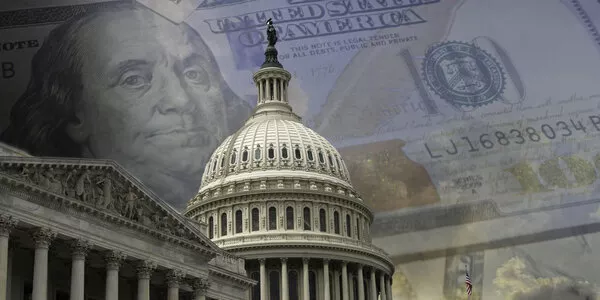
Weekly Update - United States: elections with an uncertain outcome
United States: elections with an uncertain outcome. On Tuesday 5 November, both presidential and congressional elections will be held in the United States. The polls continue to predict very close results. These elections are being held against a backdrop of outperforming US growth. The markets should remain indifferent in the event of a divided government but could react more strongly in the event of a large victory for one party or the other.
An election with an uncertain future. On Tuesday 5 November, the presidential election will be held between Kamala Harris, the current vice-president and candidate for the Democratic Party, and Donald Trump, candidate for the Republican Party. Parallel to the presidential election, legislative elections will also be held. During these elections, the entire House of Representatives and a third of the Senate will be renewed. These congressional elections are just as important to follow, since it is Congress that authorises new spending and revenue and authorises the Treasury to issue debt. It is therefore difficult for a President to implement his programme without the help of Congress. The polls are still predicting very close results for the presidential election and the election of the House of Representatives, making it highly likely that the government will be divided between the President and Congress. Moreover, the final result may not be known on 6 November.
An election held in a very favorable economic climate. Since the Covid crisis, the US economy has performed very strongly, in stark contrast to past economic crises and alsoto the major developed economies. GDP returned to pre-crisis levels in just one year, compared with three years after the shock of the 2008 financialcrisis. And since then, economic activity has continued to surprise with its dynamism. What's more, US growth is clearly outstripping that of the other developed economies, with average annual growth of close to 3% since 2022, compared with 1% for the eurozone. Finally, this growth outperformance has not been accompanied by higher inflation than in the eurozone.
Financial markets favour a divided government. Historically, the election period and the outcome of the presidential election have had little effect on US equity markets, which react more to the economic and monetary context than to campaign programmes. For the coming election, US equity markets are likely to remain indifferent or react positively to a scenario of divided government, i.e.the White House and Congress of different political colors. This configuration would mean the political status quo and limit the risk of passing more extreme legislation. A broad victory for the Democratic Party could initially result in a negative reaction from the markets, given the desire to increase corporate taxation. On the other hand, a large Republican Party victory could lead to a rise in US equity markets, given the desire to reduce corporate taxation. However, this scenario would be negative for European and emerging-market equities, given his plan to raise tariffs. In addition, the markets would remain attentive to the risk of inflation and the risk to institutions posed by Trump's programme. Click here to find out more.
Other highlights of the week
In the highlights of the week, we chose to talk about the IMF's economic outlook as well as Euro area economic conditions :
IMF: stable global economic outlook but major challenges remain. On Tuesday, the IMF published its report on the outlook for the world economy. The forecasts remain broadly unchanged (3.2% for growth and 4.3% for inflation worldwide in 2025). While the IMF notes that inflation appears to be well under control thanks to monetary policy guidelines, it highlights the excessive level of government debt. The Fund deplores the lack of fiscal discipline on the part of governments, coupled with the absence of the investment needed to generate productivity gains and innovation.
Sluggish and disparate economic conditions in the Euro Area. The outlook for activity in Europe remains gloomy, as shown by the S&P PMI surveys and survey data from INSEE and the IFO. The eurozone's manufacturing PMI remains in contraction, at 45.9, while the services PMI is slowing but remains in expansion. The economic outlook remains gloomy in Germany and France, while the peripheral economies are showing more resilient activity. INSEE survey data confirms this gloomy economic outlook in France, with a deterioration in the manufacturing sector reflecting the fall in order books, and a slight rebound in business sentiment in the services sector. In Germany, the IFO index rebounded slightly but remains at a low level.





